Mental Health Resources
Learn More About Mental Health Disorders
Learning more about mental health disorders can help you better understand and recognize when you or someone you care about is struggling and may benefit from the help of a specialist, or simply help build awareness and compassion for those around you that may be struggling with one or more of these obstacles on a daily basis. Below you will find a brief introduction to some well established mental health classifications and links that will direct you to supplementary reading and education.
Depression
Being sad or down can be a normal response to certain events. When this feeling lasts for days on end, however, and is accompanied by feelings of hopelessness, helplessness, and sometimes suicidal thoughts, we are no longer talking about a mood state, but a medical condition with potentially life-threatening consequences known as depression.
The best treatment for depression involves medication treatment as well as psychotherapy.
For more information please visit: Psychiatry.org – What Is Depression?
Anxiety
Anxiety is a natural emotion that can even be beneficial at times, but if you have an anxiety disorder, your life is taken over by intense and unrelenting fears and worries that affect your ability to lead a normal life. Everyone experiences anxiety, as it’s a basic human emotion. In simple terms, anxiety is the feeling of fear or worry and can be a normal and appropriate response to a particular stimulus or stressor.
In many situations, anxiety is quite adaptive. It’s the force that gives someone the drive to compete, win at something, practice or study extra hard, or be meticulous with regard to being on time or doing a good job. However, when anxiety becomes excessive and causes constant and distressing symptoms that interfere with an individual’s daily functioning, it reaches a level classified as an anxiety disorder.
The best treatment for anxiety involves medication treatment as well as psychotherapy.
For more information please visit: Psychiatry.org – What Are Anxiety Disorders?
Bipolar Disorder
Bipolar Disorder is a condition with both physical and mental changes, which are characterized by extreme swings of highs and lows in mood. Most typically individuals experience a combination of low moods or depression lasting for days on end alternating with periods of elation or elevated moods also lasting for days or weeks. These euphoric moods are referred to as periods of “hypomania” or mania depending on the degree of elevation of mood, and are accompanied by changes in sleep, thought process, speech, thought content, general behavior, and sense of reality.
There are different classes of medication used to stabilize and treat individuals with bipolar disorder, which can be used individually, or often in combination. These include mood stabilizers such as lithium salts, anticonvulsants, benzodiazepines, atypical antipsychotics, and other agents.
For more information please visit: Psychiatry.org – What Are Bipolar Disorders?
Attention Deficit/Hyperactive Disorder (ADHD)
Attention Deficit Hyperactivity Disorder or ADHD may be present with or without hyperactivity. The hallmark symptoms of ADHD are inattentiveness, hyperactivity, and impulsivity. Symptoms usually present in childhood before the age of 7 but maybe subtle as all children can at times display some of these behaviors.
There are different types of this condition. It can present as ADHD- Combined type with both inattention and hyperactivity, ADHD-Hyperactive Type with hyperactivity and impulsivity, and ADHD- Inattentive type with inattention only. ADHD has been an increasingly common problem in adults as well as children. Frequently overdiagnosed, this disorder has become nearly epidemic in our society and requires careful and thoughtful evaluation.
ADHD Treatments involves the use of stimulant medications as the first line of treatment for the best results. These medications require careful monitoring and regulation. When correctly diagnosed and treated, individuals often report excellent responses to available medications as well as the multiple therapies available to augment the pharmacologic treatments, all of which help to restore the individual to good mental health.
For more information please visit: Psychiatry.org – What Is ADHD?
Obsessive-Compulsive Disorder (OCD)
Obsessive-compulsive disorder (OCD) is a common problem that can become severely debilitating for many. Obsessive-compulsive disorder, or OCD, is a chronic mental health condition that has two key aspects: obsessions and compulsions.
Obsessions are unwanted, unpleasant, and uncontrollable thoughts that intrude on your mind repeatedly, while compulsions are actions that you feel compelled to carry out, often many times over. People who have OCD can have either obsessions or compulsions, or both at the same time. The symptoms of OCD can become so disruptive to daily life that they affect your ability to work, study, and maintain relationships with friends and family.
Treatment involves medication and psychotherapy treatment.
For more information please visit: Psychiatry.org – What Is OCD?
Personality Disorder
Personality is the way of thinking, feeling, and behaving that makes a person different from other people. An individual’s personality is influenced by experiences, environment (surroundings, life situations) and inherited characteristics. A person’s personality typically stays the same over time.
A personality disorder is a way of thinking, feeling, and behaving that deviates from the expectations of the culture, causes distress or problems functioning, and lasts over time. The conditions can affect your thinking about yourself and others, how you respond emotionally in different situations, how you relate to other people, and the manner in which you control your behaviours. There are many different types of personality disorders. The pattern of experience and behaviour begins by late adolescence or early adulthood and causes distress or problems in functioning. Without treatment, personality disorders can be long-lasting.
Medication can be part of treatment that can help with symptoms of a personality disorder but the main treatment is psychotherapy. Certain types of psychotherapy are effective for treating personality disorders. During psychotherapy, an individual can gain insight and knowledge about the disorder and what is contributing to symptoms and can explore their thoughts, feelings, and behaviours. Psychotherapy can help a person understand the effects of their behaviour on others and learn to manage or cope with symptoms and reduce behaviours causing problems with functioning and relationships.
For more information please visit: Psychiatry.org – What Are Personality Disorders?
Post-Traumatic Stress Disorder (PTSD)
Post-Traumatic Stress Disorder (PTSD) is a psychiatric disorder that may occur in people who have experienced or witnessed a traumatic event such as a natural disaster, a serious accident, a terrorist act, war/combat, or rape or who have been threatened with death, sexual violence or serious injury.
People with PTSD have intense, disturbing thoughts and feelings related to their experience that last long after the traumatic event has ended. They may relive the event through flashbacks or nightmares; they may feel sadness, fear, or anger; and they may feel detached or estranged from other people. People with PTSD may avoid situations or people that remind them of the traumatic event, and they may have strong negative reactions to something as ordinary as a loud noise or an accidental touch.
Both psychotherapy and medication provide effective evidence-based treatments for PTSD. One category of psychotherapy, Trauma-Focused Cognitive Behaviour Therapy (TF-CBT), is very effective.
For more information please visit: Psychiatry.org – What Is PTSD?
Autism Spectrum Disorder (ASD)
Autism Spectrum Disorder (ASD) is a complex developmental disorder that can cause problems with thinking, feeling, language, and the ability to relate to others. It involves persistent challenges in social interaction, speech, and nonverbal communication, and restricted/repetitive behaviours.
The effects of ASD and the severity of symptoms are different in each person. ASD is usually first diagnosed in childhood with many of the most obvious signs presenting around 2-3 years old, but some children with autism develop normally until toddlerhood when they stop acquiring or lose previously gained skills. Autism is a lifelong condition. However, many children diagnosed with ASD go on to live independent, productive, and fulfilling lives.
There is no single treatment for autism. Treatments can include intensive skill-building and teaching educational sessions, known as applied behaviour analysis (ABA), and many more interactive, child-centred versions of behaviour treatments. Treatment may also involve special training and support for parents, speech and language therapy, occupational therapy, and/or social skills training.
For more information please visit: Psychiatry.org – What Is Autism Spectrum Disorder?
Psychiatry Online Canada
We Are Here To Help You Get Through It
Just like physical illnesses, these ailments can be treated through medication and therapy. Our team of psychiatrists can get you started on your journey - we want nothing more than your best possible outcome!
Take a Moment for Yourself
Most Popular Massages
Lorem ipsum dolor sit amet, consectetur adipisicing elit, sed do eiusmod tempor incididunt ut labore et dolore magna aliqua. Ut enim ad minim veniam, quis nostrud exercitation ullamco laboris nisi ut aliquip.

- 01
Facial Massage
Lorem ipsum dolor sit amet, consectetur adipisicing elit, sed do eiusmod tempor incididunt ut labore et dolore magna aliqua. Ut enim ad minim veniam, quis nostrud exercitation ullamco laboris nisi ut aliquip.
Benefits
- Produces feelings of caring, comfort and connection
- Effective treatment for reducing stress
- 02
Back Massage
Lorem ipsum dolor sit amet, consectetur adipisicing elit, sed do eiusmod tempor incididunt ut labore et dolore magna aliqua. Ut enim ad minim veniam.
Benefits
- It counteracts all the sitting you do
- Effective treatment for reducing stress
- Reduces the pain and muscle tension


- 03
Foot Massage
Lorem ipsum dolor sit amet, consectetur adipisicing elit, sed do eiusmod tempor incididunt ut labore et dolore magna aliqua. Ut enim ad minim veniam, quis nostrud exercitation ullamco laboris nisi ut aliquip.
Benefits
- Improves sleep
- Effective Stress reducing treatment
Choose What's Right for You
More Types of Massage
- 01
Swedish Massage
Lorem ipsum dolor sit amet, consectetur adipisicing elit, sed do eiusmod tempor incididunt ut labore et dolore.
- 02
Aromatherapy Massage
Lorem ipsum dolor sit amet, consectetur adipisicing elit, sed do eiusmod tempor incididunt ut labore et dolore.
- 03
Hot Stone Massage
Lorem ipsum dolor sit amet, consectetur adipisicing elit, sed do eiusmod tempor incididunt ut labore et dolore.
- 04
Deep Tissue Massage
Lorem ipsum dolor sit amet, consectetur adipisicing elit, sed do eiusmod tempor incididunt ut labore et dolore.
- 05
Shiatsu Massage
Lorem ipsum dolor sit amet, consectetur adipisicing elit, sed do eiusmod tempor incididunt ut labore et dolore.
- 06
Thai Massage
Lorem ipsum dolor sit amet, consectetur adipisicing elit, sed do eiusmod tempor incididunt ut labore et dolore.
- 07
Pregnancy Massage
Lorem ipsum dolor sit amet, consectetur adipisicing elit, sed do eiusmod tempor incididunt ut labore et dolore.
- 08
Sports Massage
Lorem ipsum dolor sit amet, consectetur adipisicing elit, sed do eiusmod tempor incididunt ut labore et dolore.
- 09
Reflexology
Lorem ipsum dolor sit amet, consectetur adipisicing elit, sed do eiusmod tempor incididunt ut labore et dolore.
